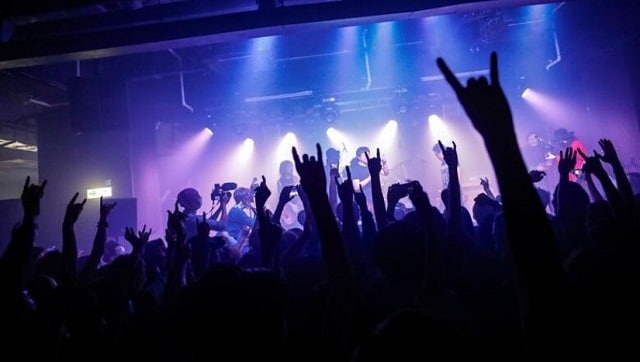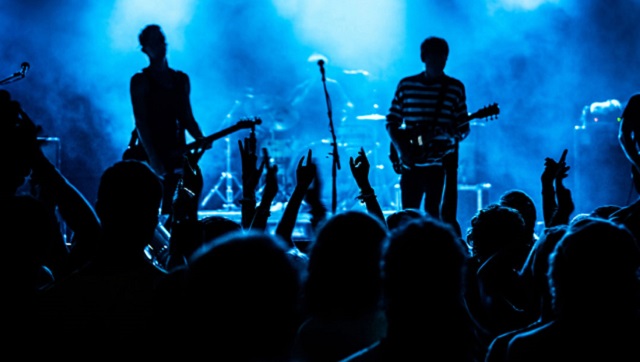As we ride out what is hopefully the end of the third wave of the pandemic, we are likely to see live music events restart after a month-long break, the shortest of three pauses the industry has witnessed over the last two years. In Mumbai, where I live, gigs are back at the only real venue we have, antiSOCIAL, with the early stop time of 10 PM. Unsurprisingly, they are all electronic music affairs. Though we have seen more Indian independent music, across all genres, being released than ever before since 2020, the opportunities to hear most of those tracks live have reduced greatly. At antiSOCIAL, for instance, only three of the dates in November 2021 were played by non-electronic music acts. Music venues, the majority of which are bars or restaurants, are desperately trying to recover the losses incurred over two extensive lockdowns, and for them, hiring a DJ is more lucrative than staging a concert by a band or solo singer. That DJs are preferred because they are more likely to bring in a big-spending, partying crowd has been the case for almost three decades. The pandemic has titled the balance to a greater extent. This is not the only difference I have observed. But as somebody who has barely attended any gigs in the past 22 months, I felt it best to confirm whether my conclusions are correct by asking over half-a-dozen of the country’s most prominent Indian independent artist managers and promoters about how they think the scene has changed. Observation: There are fewer venues hosting live bands and non-electronic solo acts Consensus: True Almost all the managers/promoters I interviewed agreed that the chances for non-DJs to play live have fallen considerably. With the absence of major public and college festivals, most of which have been cancelled or postponed indefinitely, there has been a lack of platforms especially for newer artists, who are being deprived of the irreplicable feeling of performing in front of a physically present audience. (To me, digital gigs are similar to online schooling, no matter how attentive a child or audience member might be, there will be some gaps in the overall experience.) On the other hand, a clutch of established and fast-rising indie acts, including Divine, Prateek Kuhad , Parvaaz, When Chai Met Toast, and Anuv Jain, have successfully staged nationwide tours, and charged ticket prices comparable to those for star DJs. For instance, the average tag for Jain’s concerts in metros was Rs 2,500. Aayushman Sinha, the founder of Jain’s management company Represent, believes that because of the complications involved with flying in international acts in the current scenario of frequently changing travel guidelines, promoters are looking to book domestic talent, and finding that they can attract attendees in quantities that rival those of their foreign counterparts. Jain, Sinha says, sold over 10,000 tickets across 10 cities. He, however, is an outlier. Sohail Arora, the founder of artist management and events agency Krunk, says, “While singer-songwriters are doing extremely well on streaming services, they don’t always translate to selling tickets unless they’ve reached tier-1 status”. The restrictions on and risks of holding intimate sessions like the SoFar Sounds series, where such acts honed their skills, has further reduced their scope of graduating to larger stages." Observation: The touring circuit is no longer restricted to three cities Consensus: True Less than five years ago, touring in India was largely limited to Mumbai, New Delhi, and Bengaluru. Today, there are about a dozen other cities with fan bases substantial enough to warrant covering them in a country-wide trek. The list now includes Pune, Goa, Hyderabad, Kolkata, Chandigarh, Jaipur, Indore, Lucknow, Chennai, and Guwahati. “The capacities are obviously different for a show in Mumbai versus a show in Indore but there’s still a strong ticket-buying audience,” says Sinha. In some cases, the crowds have been even larger than in the strongholds. Chaitanya Kataria, the CEO of the hip-hop focused enterprise Gully Gang Entertainment that he co-founded with Divine, would go so far as to say that because of constraints in cities such as Mumbai, “Goa and Hyderabad [have been] leapfrogging the traditional circuit.” [However, a directive just issued in Hyderabad threatens its position.] Perhaps we can credit the exponential rise in the popularity of streaming services and social media for this expansion, for they can tell artists exactly where their listeners are based. “I realised Parvaaz has a following in Lucknow and Ahmedabad owing to their social media follower analysis and streaming reports,” says Yama Seth, who manages them at Big Bad Wolf Entertainment. “[When] we took up a show at a festival called Repertwahr [in Lucknow], those numbers became real people without any out-of-the-ordinary promotions.” According to Himanshu “Chow” Chowdhry, the founder of talent and event agency Spectal Management, the pandemic has contributed to the growth of patrons in these places as it caused several young people living in metros to move back in with their parents. “A lot of them have been in their hometowns for a better part of the last two years, and hence there is an inherent demand for such experiences,” says Chowdhry whose company’s roster features the groups The Local Train and When Chai Met Toast. “[Many] who attended When Chai Met Toast’s concert in Lucknow were either exposed to them in college or in a major city.” [caption id=“attachment_8437771” align=“alignnone” width=“640”]  Live music. Representational image[/caption] Observation: Goa is the country’s new live music hub Consensus: Partially true Going by the announcements that I see on my social media timelines, Goa seems to have overtaken both Mumbai and New Delhi as India’s busiest music spot. More shows seem to be happening there than in recent history, which managers and promoters attribute to two main related factors. The first is a huge influx of people from the creative industries, including scores of musicians, who have taken advantage of their ability to work remotely, and shifted either temporarily or permanently to Goa. The second is the fact that it has been subject to fewer curfews and restrictions than more populous locations, which in turn has encouraged additional migration. But it might be premature to anoint Goa the country’s live music capital, say artist managers. Electronic music dominates most calendars on which the few indie bands and solo acts are among the biggest in the business. “Just like in any other city, Goa venues are taking an F&B-first approach where owners look at the sales aspects of things, and [mostly] curate a DJ,” says Savinay Shetty, the co-founder of arts talent agency Misfits Inc, the roster of which includes singer-songwriters Ankur Tewari and Tejas. Chowdhury agrees.
“I guess the pandemic just accelerated the growth of north Goa as the hub where people work hard and party harder, because of which seasoned hospitality folks are utilising cheap property costs to build bigger venues.”
“[But] the majority attending the gigs are still more inclined to commercial music," he says. Among the major openings in Goa last year were Vagator establishments Hammerz Open Air, where Canadian Punjabi hip-hop heavyweight AP Dhillon and his crew performed, and Mirage Beach Club, which apart from serving as the Goa stop for Kuhad’s recent winter tour, hosted a show by Jason Derulo, arguably the biggest international name to have visited India since March 2020. Moreover, Goa has always been more of a seasonal market, where the bulk of the action takes place during the festive months and around holidays such as Holi and Independence Day, adds Sinha, who is optimistic that the sunshine state can become “the Ibiza [of India] with all these massive capacity clubs coming in that have the ticketing volume to book top tier artists”. He says, “The residency model followed in Vegas and Ibiza will soon kick in with Goan clubs as they look to build stronger IPs.” Amit Gurbaxani is a Mumbai-based journalist who has been writing about music, specifically the country’s independent scene, for nearly two decades. He tweets @TheGroovebox.


)
)
)
)
)
)
)
)
)



